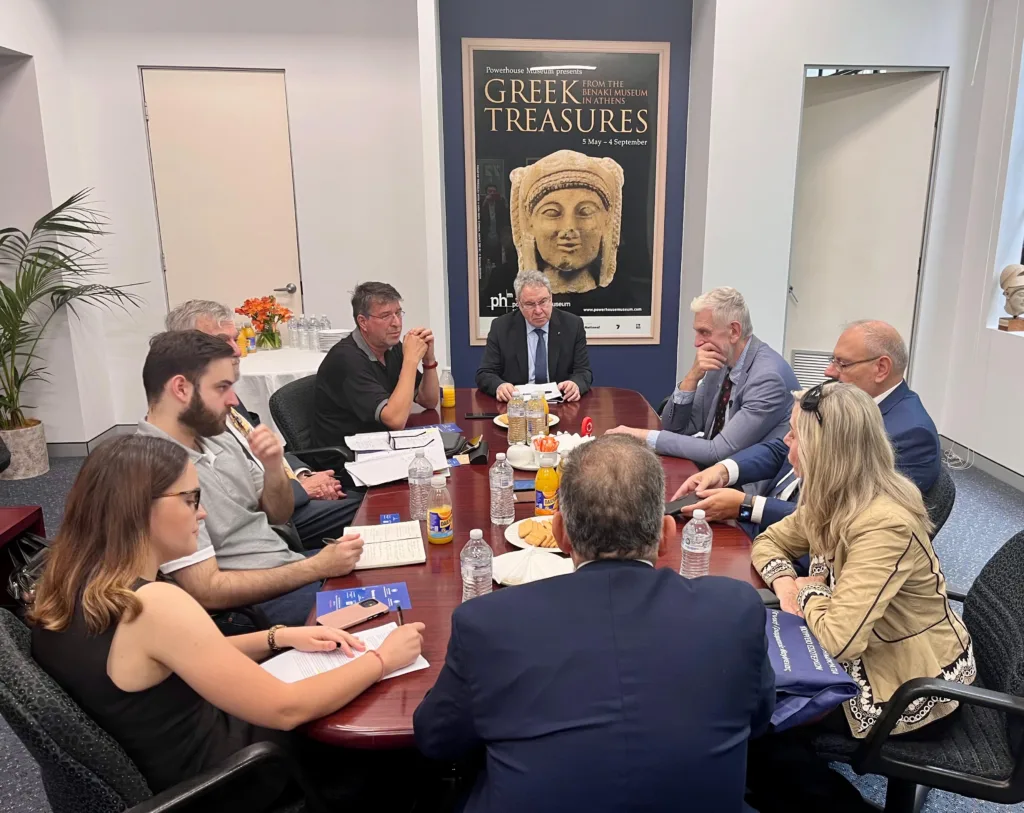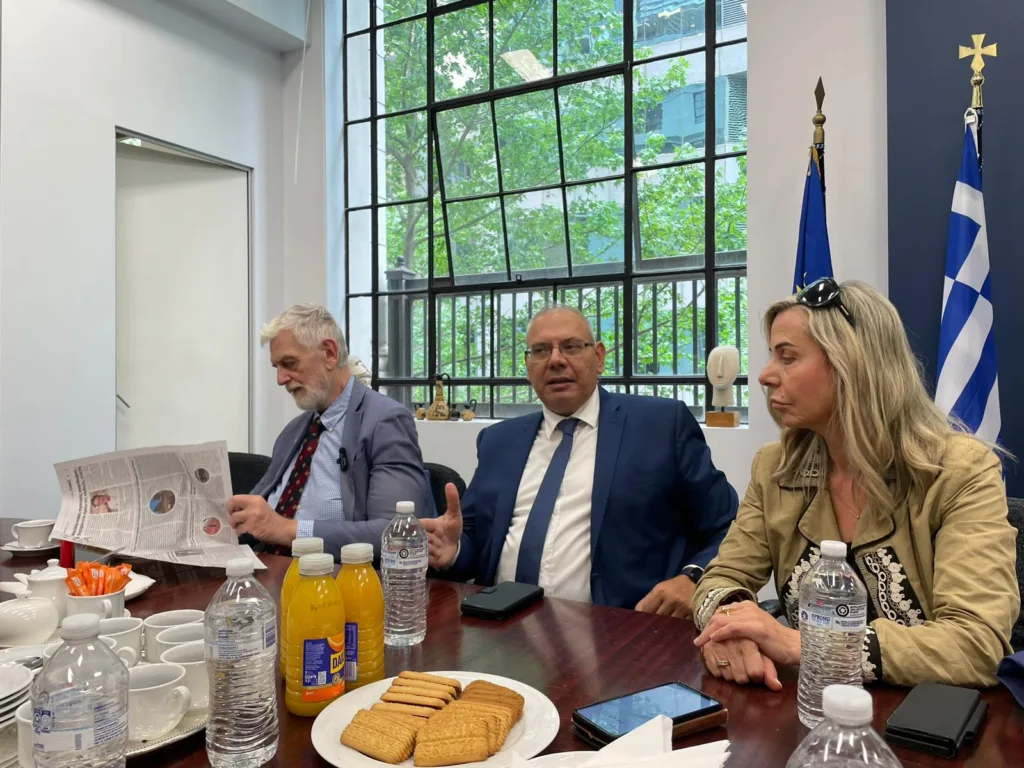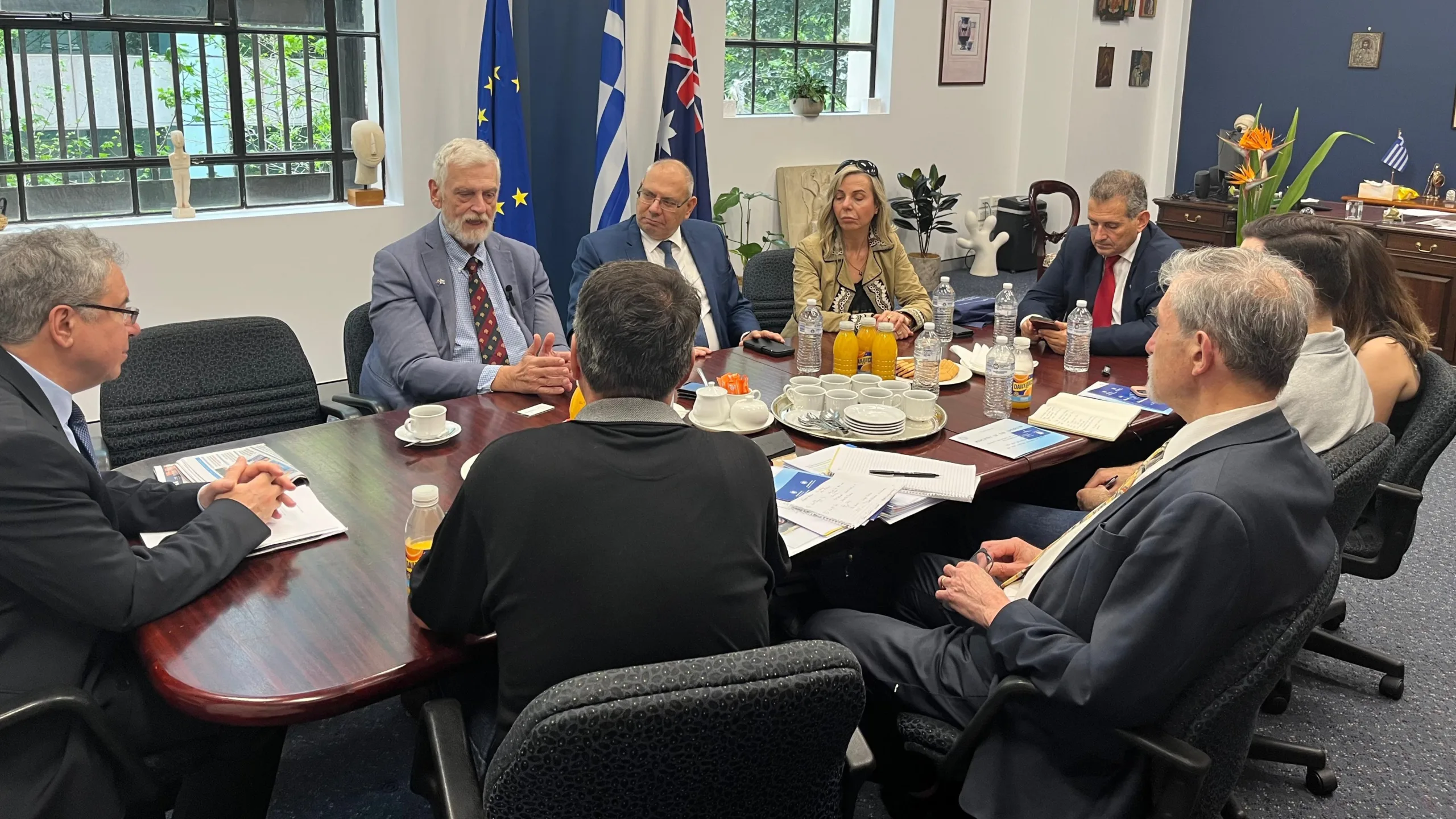Speaking during a media conference at the Consulate General of Greece in Sydney on Wednesday, 9 October 2025, Greece’s Deputy Foreign Minister for Greeks Abroad Ioannis Loverdos confirmed that the Greek Government has commenced a trial of its new digital consular services in Perth, marking a major step toward modernising how Greeks abroad access essential documents and support.
Mr Loverdos said the trial forms part of a wider government plan to digitise consular functions through what he called an “E-Proxenio” platform, which operates within the national gov.gr digital services framework and will progressively expand to other states.
“The trial has already commenced in Perth,” Mr Loverdos told The Greek Herald. “It will then be extended to Adelaide and the largest Australian states, including New South Wales and Victoria, where the Greek communities are among the most active and numerous in the world.”
The announcement follows early reporting by The Greek Herald in 2020, which revealed that the Greek Consulate in Perth would be among the first to undergo digital transformation – foreshadowing the government’s long-term vision to modernise consular services for Greeks abroad.

The service, first detailed to The Greek Herald by Deputy Minister of the Interior Theodoros Livanios, will serve as an integrated online portal for citizenship applications, registry certificates, document authentication and other consular processes. It aims to significantly reduce waiting times and streamline communication between the diaspora and Greece’s Ministry of Foreign Affairs.
The system will also anticipate access for non-Greek passport holders and individuals of Greek heritage who are not yet citizens, mirroring the verification process already used on gov.gr. Greeks living abroad will be able to visit their local consulate to receive a one-time password and access code, allowing them to securely log in and complete digital transactions through the platform.
Australia hosts the largest Greek diaspora community in the world outside of Greece, making it a strategic testing ground for the government’s digital consular reform. Greek community leaders have long advocated for easier access to documentation and citizenship services – a concern that Mr Loverdos said the new system is designed to directly address.
“Our goal is to make every Greek abroad feel as close to home as possible,” he said. “If the Perth trial proves successful, it will pave the way for a global rollout, changing forever how millions of Greeks abroad interact with their homeland.”

During the media conference, Mr Loverdos also confirmed that from 1 January, overseas allowances for Greek officials posted abroad will be doubled, a measure designed to address chronic staffing shortages across consulates and embassies.
“This reform will make postings abroad more viable for Greek diplomats and civil servants, ensuring that consular offices can operate at full capacity and provide faster, more reliable services to citizens,” he said.
He highlighted that the government’s dual focus on staffing and digital reform is key to improving services for Greeks abroad.
When asked how the government intends to ensure the diaspora is properly informed about these new services, Mr Loverdos acknowledged the need for stronger communication channels between the Greek state and diaspora media.

“This is an issue that was also brought to me by some representatives of the diaspora who came from New York, and by Publisher of The Greek Herald Dimitra Skalkos, who met with me,” he said.
“As a veteran journalist myself — I’ve been a journalist for 35 years — I understand how diaspora media may sometimes feel neglected or under-appreciated in Athens. That is not the case. On the contrary, specialised newspapers offer a very important contribution to informing expatriates and the Greek diaspora in general.”
Mr Loverdos said he has already held discussions with the competent officials regarding new ways to strengthen cooperation with Greek media abroad – not necessarily through direct financial aid, but through practical measures to support sustainability and information flow.
“For example, some outlets have asked for reduced-cost access to news services from the Athens News Agency, and that could be arranged,” he explained. “We haven’t reached an agreement yet, but it’s something I am pushing for. Closer communication is needed, and I assure you that we are willing to cooperate with Greek media abroad – whether in Australia, Canada, the U.S. or elsewhere.”
